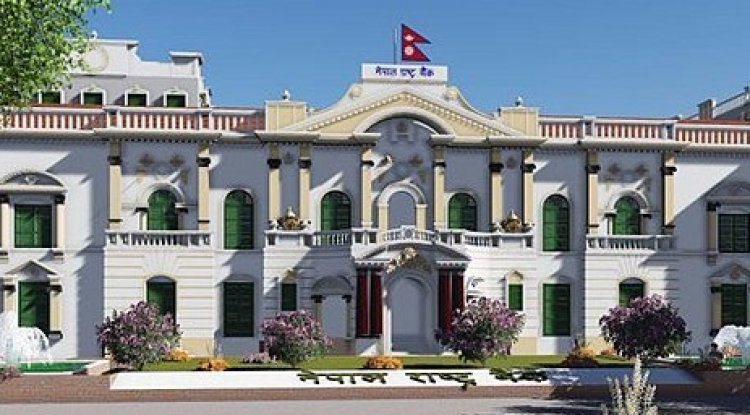The Central Bank of Nepal: Understanding its Classification, Meaning, and Crucial Functions
Explore the world of the Central Bank of Nepal with our comprehensive guide. Discover its classification, meaning, and functions that make it an essential element in the country's economy.

Meaning of Bank:
While the meaning of "bank" varies from country to country, in Nepal, "bank" can be defined as a financial institution that deals with money and credit and provides financial services to its customers by depositing and lending money and credit. The bank is important in any economy because it provides a secure and safe place to keep the money as well as credit to those in need.
Classification of Bank:
Banks can be classified into different categories based on various factors such as ownership, functions, and geographic scope:
-
Based on ownership:
- Public sector banks:
Banks that are owned and run by the government are referred to as "public-sector banks." In Nepal, several public-sector banks are regulated by the central bank of the country. Nepal Bank Limited, Rastriya Banijya Bank Limited, Agriculture Development Bank Limited, Nepal Investment Bank Limited, etc. are some of the private sector banks of Nepal.
- Public sector banks:
These are the banks that are operated and owned by private individuals or companies. These banks are also regulated by the central bank. Nabil Bank Limited, Standard Chartered Bank Nepal Limited, Himalayan Bank Limited, and Everest Bank Limited are some of the private sector banks in Nepal.
- Cooperative banks:
These are banks that are owned and operated by their members, who are typically customers of the bank. These banks are regulated by the central bank of Nepal. Sunrise Bank Limited, Mahila Sahayatra Microfinance Bittiya Sanstha Limited, and Tinau Bikas Bank Limited are some cooperative banks in Nepal.
-
Based on geographic scope:
- National banks:
These are banks that operate within a single country and are owned by the government. In Nepal, the national bank is the Nepal Rastra Bank.
- International banks:
These are banks that operate across multiple countries and have a global presence. Standard Chartered Bank, Citibank, Himalayan Bank Limited, and ICICI Bank Limited are some of the international banks in Nepal.
-
Based on functions:
- Commercial banks:
Commercial banks are the "A" class financial institutions in Nepal, which accept deposits from the public, make funds from those deposits, and provide loans to those in need with the main objective of earning profit. These banks are regulated by the central bank of Nepal. Nepal Bank Ltd., Rastriya Banijya Bank, and Nepal Investment Bank Limited are some of the commercial banks in Nepal.
- Investment banks:
These are the banks that provide investment banking services such as underwriting, advisory, and fund management to their clients. NIBL Ace Capital Limited, Sanima Capital Limited, and Civil Capital Market Limited are some of the investment banks in Nepal.
- Central banks:
These are the banks that are responsible for managing a country's monetary policy and regulating the banking industry.
Brief information about Central Bank:
The Central Bank is the largest financial institution in the entire banking system of our country. It is the regulatory and supervisory authority for the banking and financial sector in Nepal. The Nepal Rastra Bank is the only central bank in our country. The Nepal Rastra Bank was established in 1956 (13 BS) under the Nepal Rastra Bank Act, 1955 (2012 BS).
As per the Nepal Rastra Bank Act, 2002, the objectives of NRB are:
- To develop and manage the necessary monetary and foreign exchange policies to maintain price stability and the balance of payments for economic stability and long-term economic growth.
- To improve access to financial services and boost public trust in the banking and financial system by ensuring the sector's stability,
- To develop a secure, healthy, and efficient system of payment.
Here are some of the functions that are carried out by the central bank:
-
Issue of banknotes and coins:
The central bank is the only financial institution that has monopoly power over note issues as it is authorized to issue currency and notes. The Nepal Rastra Bank began issuing notes in 1921 (2016 B.S.) and now also mints coins.
-
Formulate monetary policy and implement it:
With the objective of promoting price stability and sustainable economic growth, the central bank is responsible for formulating and implementing monetary policy in Nepal. It uses a range of tools, such as setting interest rates and reserve requirements, to influence the availability of credit and the money supply in the economy.
-
Formulate foreign exchange policy and maintain a foreign exchange reserve:
The central bank manages the country's foreign exchange reserves to manage international transactions, maintain market stability, and support the balance of payments.
-
Act as a government bank and financial agent and advisor:
The central bank serves as the banker, agent, and advisor of the government. The government receives every necessary banking facility through the central bank. On behalf of the government, the central bank takes deposits of cash, checks, and drafts and also transfers funds between government accounts.
-
Act as a bank of banks:
The central bank provides banking services to financial institutions as well as controls and regulates a country's banking system. That is why it is referred to as the bank of all banks. Banking and financial institutions can be established only with the prior approval of the Nepal Rastra Bank.
-
Regulate, inspect, supervise, and monitor the banks and financial institutions of a country:
The NRB regulates, supervises, and monitors commercial banks, development banks, finance companies, and other financial institutions operating in Nepal. It sets efficient regulations and supervises compliance with these regulations to ensure the safety and soundness of the financial system.
-
Functions as a lender as a last resort:
If commercial banks, development banks, and other financial institutions are unable to meet their financial requirements from other sources, they may turn to the central bank for financial help. The central bank provides them with financial help; that's why they are known as lenders of last resort.
-
Control credit:
Since uncontrolled credit causes an economic crisis in an economy, controlling credit is the most important function of the central bank. Inflation is caused by the overexpansion of credit, whereas deflation is caused by an expansion of credit. Therefore, the central bank controls credit by using instruments like the bank rate, cash reserves, and open market operations.
-
Develop secure, healthy, and efficient modes of payment:
The central bank is committed to promoting the development of secure, healthy, and efficient modes of payment in Nepal, to improve the country's financial system and support economic growth.
-
Carry clearing house function:
The Clearinghouse is a system that facilitates the transfer of funds between banks, allowing them to settle their payment obligations with one another. The clearinghouse receives payment instructions from each participating bank and matches the payment orders to ensure that the appropriate funds are transferred between banks. The clearinghouse then settles the net payment obligations between banks, with the NRB acting as the settlement agent.
What's Your Reaction?








































































































